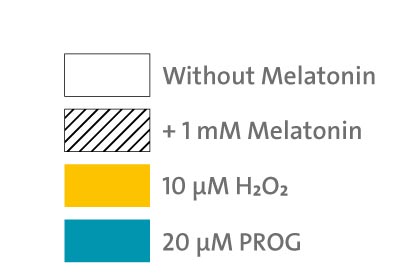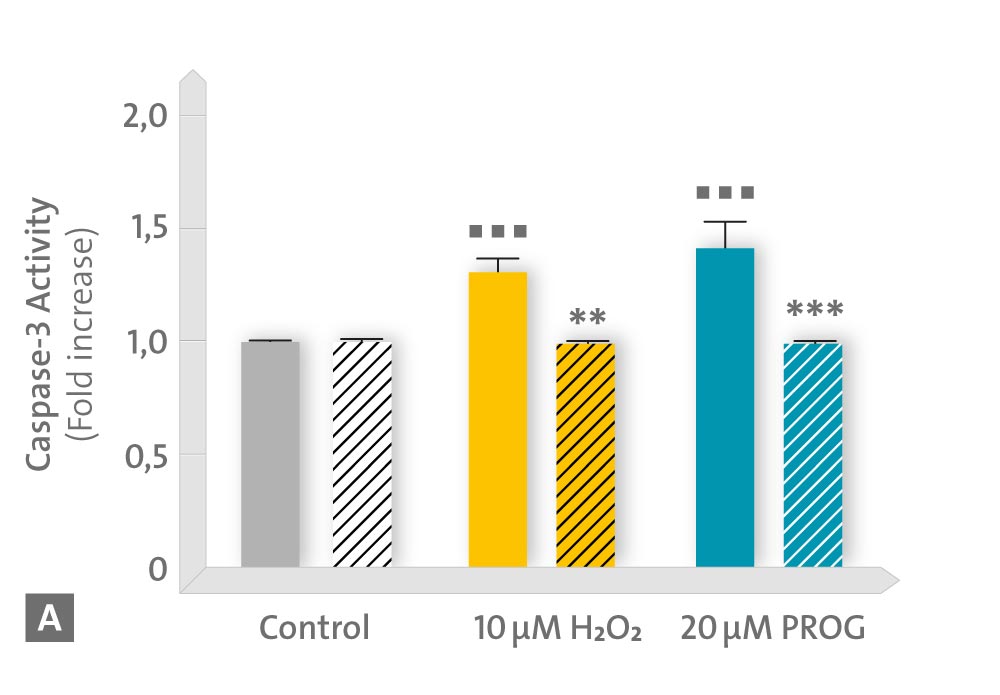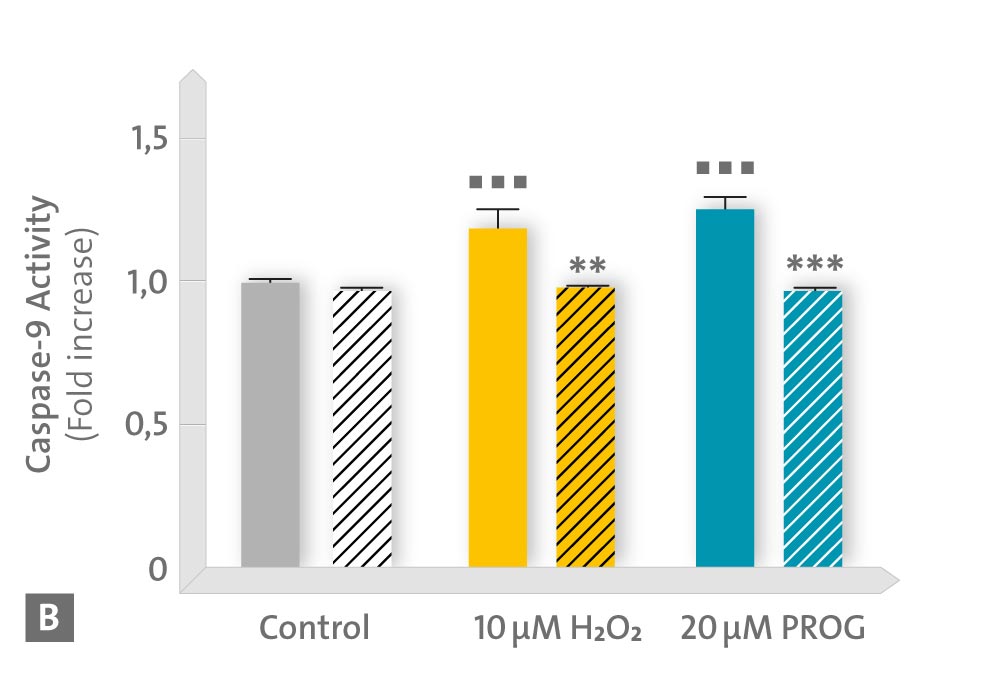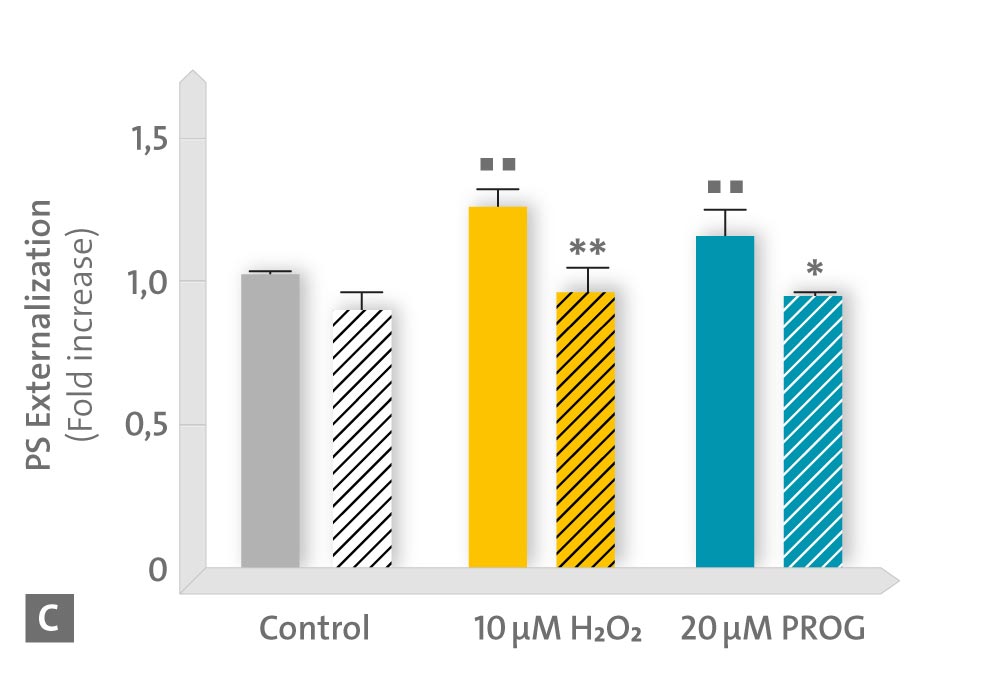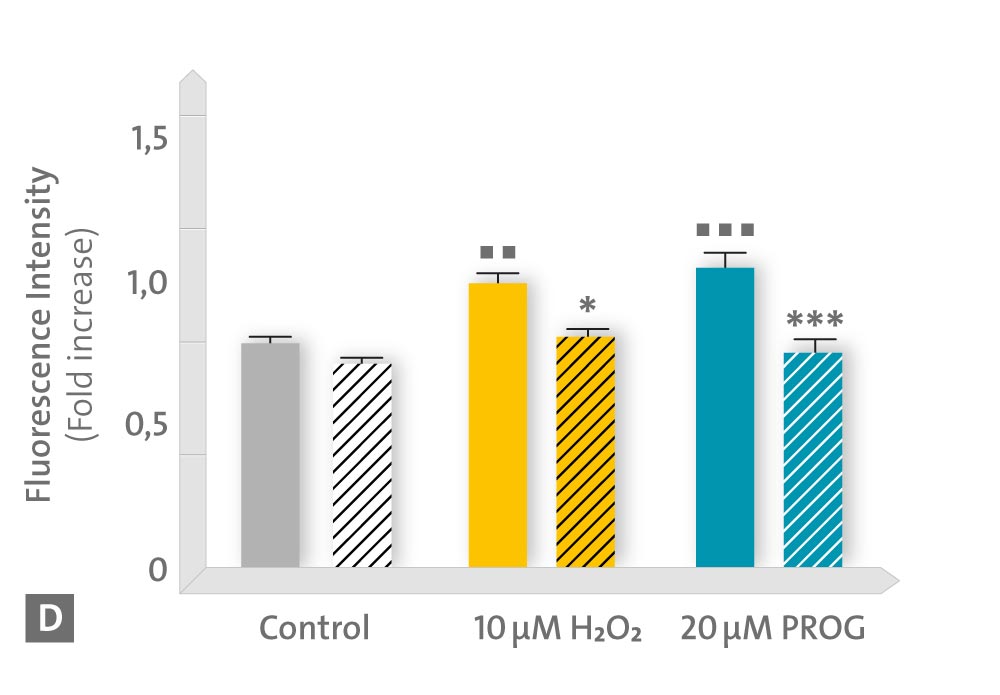It is assumed somatic cells can die in the apoptotic, the autophagic, or the necrotic way; however, the mechanisms of sperm death are not clear.
Here, ejaculated human spermatozoa were evaluated for apoptosis and reactive oxygen species production in the absence or presence of melatonin, and we concluded that melatonin reverses sperm apoptosis due to its free radical scavenging actions.
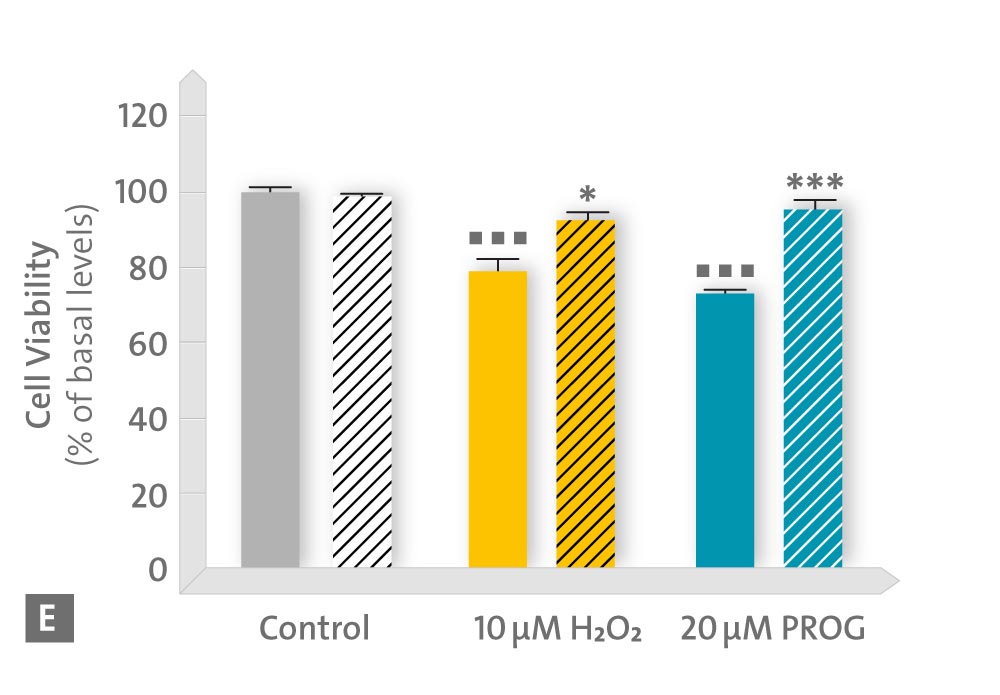
• A caspase-3 activity
• B caspase-9 activity
• C PS exposure
• D mitochondrial reactive oxygen species concentration
• E sperm viability.
The values are represented as mean values ± SD of four to six independent experiments, referring to the respective starting values at point of time 0 (before start of exposure).
